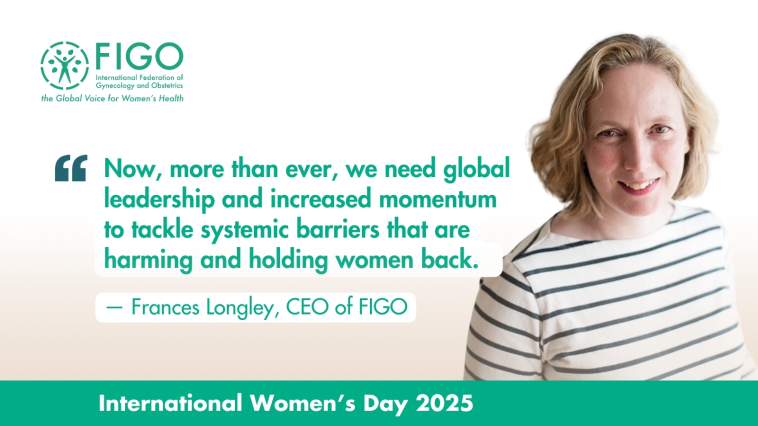Time is running out: let’s accelerate progress towards gender equity in healthcare

This International Women's Day, we must reflect on the serious challenges women and girls face.
Every 11 minutes, a woman or girl is killed by a member of her own family. One in three women have suffered physical and/or sexual intimate partner violence, non-partner sexual violence, or both.
Worldwide, 800 women die every day from complications related to pregnancy and childbirth, while 40% live in countries where abortion laws are restrictive. 270 million women have no access to modern contraception.
More than 12,000 girls are at risk of female genital mutilation every day. Obstetric fistula affects 2 million women in low-resource countries, with up to 100,000 additional women developing this devastating childbirth condition every year.
But these challenges also urge us all to act.
Now, more than ever, we need global leadership and increased momentum to tackle systemic barriers that are harming and holding women back.
Now, more than ever, we need to come together to drive the change we need.
The critical need to prioritise women’s lives, health and rights
Women’s health and rights are the foundation of economic and social development worldwide. Yet, they continue to be under-prioritised, under-resourced and neglected. We must accelerate action and increase investment to guarantee access to timely, high quality, affordable and respectful care for every woman and girl, regardless of where they live.
In recent weeks we’ve once again seen that funding for women’s health and rights is considered a soft target for governments looking to make budget cuts.
These cuts disproportionately affect financial support for women’s health and rights organisations and limit access to vital healthcare services. They will have a devastating impact on disadvantaged and marginalised communities worldwide.
But the women and girls directly affected by those decisions weren’t consulted. As the global health and rights architecture shifts, we need to listen to the voices and experiences of women and girls who are telling us what they need for their own health, rights and choices.
Working together across FIGO’s 139 members, and with our partners in WHO and beyond, we know that maternal mortality unfairly hits the most vulnerable women in the most under-resourced communities. Low-, lower- and middle-income countries account for almost all maternal deaths: over 99% of deaths from pre-eclampsia, PPH and unsafe abortion occur in developing regions, worsened by high anaemia rates.
We know why women are dying and we know how, together, we can prevent it. All we need is bold, collective action and more funding to scale up life-saving health interventions and protect access to inclusive, comprehensive reproductive services.
The theme of this year’s International Women’s Day campaign is "Accelerate Action" – a powerful reminder for us to take swift and decisive steps towards achieving gender equity in healthcare.
Building stronger, more equitable health systems
As the world’s largest alliance of national societies of obstetrics and gynaecology, FIGO has a crucial role to play to shape inclusive, equitable health systems and equip professionals to provide the high-quality services women and girls deserve.
Together with our member societies, we will continue to amplify the latest critical insights, facilitate knowledge sharing and help women’s health workers to grow, strengthen their capacity and collaborate with each other to deliver the best possible care.
We will carry on leading life-saving work to reduce deaths from postpartum haemorrhage, increase access to safe abortion services, train surgeons to provide life-changing fistula repair operations, increase effective coverage of maternal health clinical interventions and promote gender equity and female leadership in healthcare.
And we will march on relentlessly, alongside our partners and allies, to call on policymakers, community leaders and healthcare organisations to step up progress towards gender equity worldwide. Join us to build a safer, better future for women and girls everywhere.